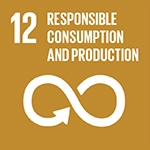Using Artificial Intelligence (AI) on ASTM standards and related intellectual property is prohibited. Violations will result in suspension of access.

Aug 11, 2025
ASTM International is developing a proposed standard (WK95172) that describes a rapid diagnostic fuel quality test procedure that measures the levels of microbial contamination in fuel or fuel-associated water samples.
WK95172 is being developed by the stability, cleanliness, and compatibility of liquid fuels subcommittee (D02.14), part of ASTM’s petroleum products, liquid fuels, and lubricants committee (D02).
According to ASTM member Myrsini Chronopoulou, the proposed test method describes a rapid procedure (around 20 minutes) that can be used in the field or in a laboratory setting to detect carbohydrates that indicate microbial contamination in liquid fuels (e.g., kerosene and diesel). It can be easily performed by any user, including users without any special technical expertise.
“Microbial contamination in fuel systems is a well-recognized problem, which can lead to fuel degradation, tanks and pipes corrosion, equipment and systems failure, operations disruption, and ultimately very high repair costs,” says Chronopoulou, head of research and development, Conidia Bioscience. “This method is a lateral flow test (LFT), similar to the pregnancy and COVID-19 rapid tests, but instead of searching for the markers of pregnancy hormones (HCG), it targets the markers (carbohydrates) of the microorganisms that thrive in fuel systems.”
The standard can be applied by anybody who deals with fuel quality management or fuel systems maintenance, in a variety of industry sectors (including aviation, land and marine diesel, military, and power generation, among others).
ASTM welcomes participation in the development of its standards. Become a member at JOIN ASTM.
United Nations Sustainable Development Goals Supported:


September / October 2025